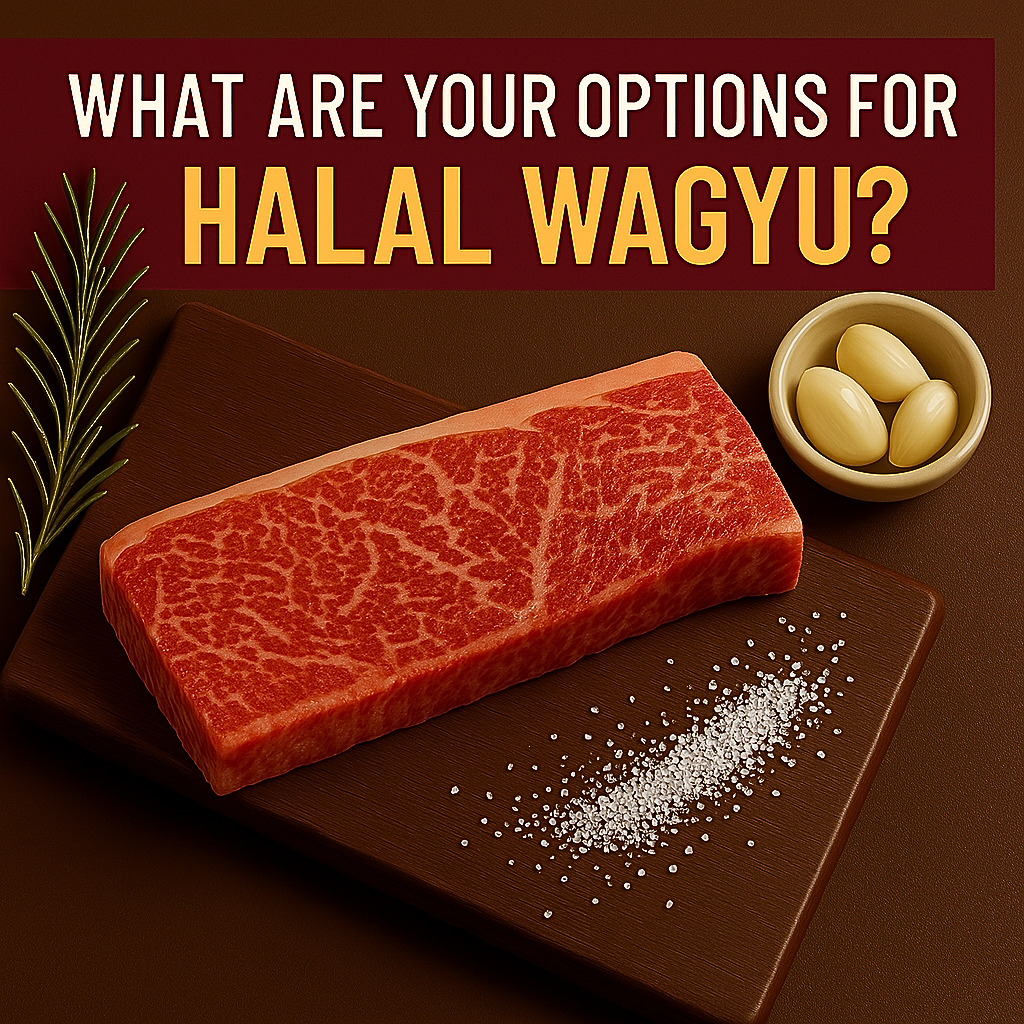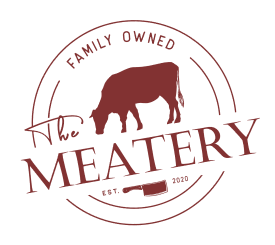What Makes Wagyu and Kobe Beef Unique?
When discussing premium meats, Wagyu beef inevitably comes to mind due to its unparalleled tenderness, rich marbling, and exceptional flavor. Kobe beef, a type of Wagyu originating specifically from the Hyogo Prefecture of Japan, is especially prized for its luxurious texture and buttery taste. Wagyu cattle are uniquely raised with strict dietary guidelines and meticulous breeding standards that contribute to their extraordinary meat quality.
But what about halal Wagyu? With the global expansion of Wagyu’s popularity, there's an increasing demand within Muslim communities worldwide. This guide will explore how authentic Kobe and Wagyu beef can indeed align with Islamic dietary laws and where halal options are available.
Can Kobe Beef Be Halal?
Kobe beef itself isn’t inherently halal or non-halal—rather, it depends entirely on how the cattle are slaughtered and processed. According to Islamic dietary laws, several conditions must be met:
-
The animal must be slaughtered by a Muslim or an individual from the People of the Book (Jews or Christians).
-
The name of Allah must be invoked during the act of slaughter.
-
The slaughter must be swift, humane, and minimize animal suffering.
-
The meat must be free of any contamination by non-halal substances throughout processing.
Thus, Kobe beef can absolutely be halal if these conditions are strictly observed. Reputable producers in Japan and other countries have obtained certifications from well-known Islamic authorities, ensuring their Kobe beef is halal-compliant.
Availability of Halal A5 Wagyu in Japan
A5 Wagyu represents the highest classification within the Wagyu grading scale, indicating superior marbling, tenderness, and flavor. Halal A5 Wagyu, while limited, is available in Japan, especially in major cities catering to Muslim populations and international tourists.
Cities like Tokyo, Osaka, and Kyoto are prime locations where Muslim-friendly establishments are flourishing, driven by growing international demand. In these metropolitan hubs, you can discover specialty restaurants and meat suppliers that have sought halal certifications, providing a genuinely premium experience without compromising religious principles.
The Halal Certification Process for Wagyu Beef
Halal certification in Japan is thorough and involves multiple stringent steps, including:
-
Application and Assessment: Producers must initially apply for certification with recognized Islamic authorities. This begins the official evaluation of their facilities and processes.
-
Facility Inspection: Islamic authorities carefully inspect all stages—from cattle raising to slaughterhouses, processing plants, and storage facilities—to confirm compliance with Islamic laws.
-
Slaughtering Protocol: The slaughter process is supervised and executed by a qualified Muslim slaughterer. A prayer invoking the name of Allah is recited to sanctify the act.
-
Ingredient and Processing Verification: Inspectors confirm no non-halal ingredients or contaminants, such as pork derivatives or alcohol-based additives, have been introduced during processing.
-
Documentation and Traceability: Extensive records and documentation ensure transparency and traceability, assuring consumers of the beef’s halal authenticity.
-
Certification Issuance: Once approved, a certificate is provided, signifying compliance. This certification is typically renewed annually, ensuring ongoing adherence to halal standards.
Even more detail on Halal Certification Requirements
Several fundamental elements consistently appear across halal certification criteria for Wagyu beef:
-
Strict Slaughter Guidelines: Humane and swift methods are non-negotiable, adhering meticulously to Islamic principles.
-
Ingredient Integrity: Complete transparency of ingredients ensures that no hidden non-halal additives compromise the product.
-
Facility Standards: Cleanliness, hygiene, and isolation from non-halal products and processes are strictly maintained.
-
Clear Labeling and Transparency: Products must bear clear halal labeling to avoid consumer confusion and ensure authenticity.
These robust guidelines not only respect Islamic dietary laws but also assure customers of product integrity and superior quality
It’s also essential to understand that halal Wagyu consumption involves nuances beyond mere certification:
-
Cross-contamination Awareness: Ensure the restaurant’s kitchen practices are compliant and avoid cross-contamination.
-
Certification Validation: Always verify current certifications by recognized Islamic authorities.
-
Cultural Understanding: Appreciating the cultural and culinary heritage of Wagyu beef enhances the dining experience significantly.
Exploring Halal Wagyu Options in Major Japanese Cities
If you ever have the chance to visit Japan, and enjoy extremely cheap wagyu, there are so many establishments that are renowned for their extraordinary meat and are Halal Certified!
Here are some examples:
Tokyo: A Culinary Epicenter
Tokyo stands out as Japan’s culinary heartbeat, offering an array of halal dining options for Muslim consumers eager to enjoy premium Wagyu beef. Noteworthy halal Wagyu establishments include:
-
Halal Yakiniku Akatoriton: Renowned for authentic Wagyu yakiniku, providing an immersive and delicious dining experience.
-
Narisawa: A Michelin-starred restaurant that offers exquisite halal-certified Wagyu dishes.
-
Tokyo Halal Gourmet: Trusted supplier providing certified halal Wagyu products ideal for home cooking.
Osaka: A Food Lover’s Paradise
Osaka, celebrated for its dynamic culinary landscape, has increasingly embraced halal cuisine. Recommended establishments include:
-
Halal Yakiniku Gyubachi: Specializing in high-quality halal Wagyu grilling, perfect for exploring traditional Japanese barbecue.
-
Halal Izakaya Sakura: Combining the casual izakaya atmosphere with halal-certified Wagyu options, perfect for authentic dining experiences.
-
Halal Meat Shop Osaka: Ideal for those looking to purchase premium halal Wagyu for home preparation.
Kyoto: Tradition Meets Modernity
Kyoto, famous for its heritage, is progressively catering to halal requirements, offering establishments like:
-
Ganko Sushi: Known for delicious halal Wagyu dishes that fuse traditional culinary artistry with strict halal compliance.
-
Ayam-ya Kyoto: While primarily ramen-focused, it occasionally offers halal Wagyu specialties catering to diverse tastes.
Global Expansion of Halal Wagyu
Outside Japan, demand for halal Wagyu is rapidly growing, notably in regions such as Southeast Asia, the Middle East, Europe, and North America. Countries like the UAE, Malaysia, Singapore, and the USA now feature halal-certified Wagyu offerings, signaling broader acceptance and availability. This global expansion indicates increased recognition of Muslim dietary needs within the premium beef market.
Conclusion: Enjoying Halal Wagyu with Confidence
Halal Wagyu beef perfectly illustrates that religious dietary requirements can coexist harmoniously with gourmet culinary experiences. With meticulous adherence to Islamic laws and certification standards, authentic halal Kobe and Wagyu beef is accessible, providing unparalleled taste and peace of mind.
Whether exploring bustling Japanese cities or seeking premium halal meats globally, Muslim consumers can now confidently savor one of the world's most luxurious meats, fully assured of its authenticity, quality, and compliance.









